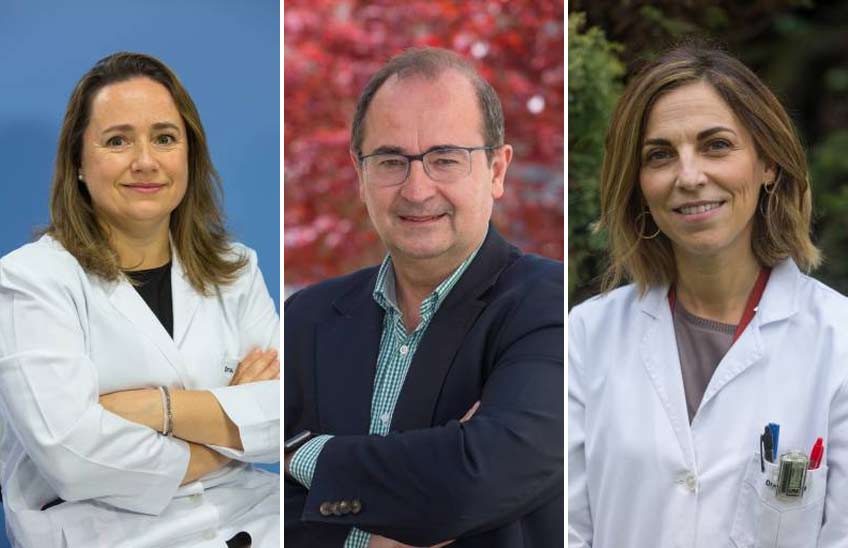Define competencies in research to improve the internship of palliative care professionals.
The project RESPACC, in which experts from the University of Navarra participate, is developed thanks to a financial aid Erasmus+ granted by the European Commission.

FotoManuelCastells/Marina Martínez, Carlos Centeno and Leire Arbea
22 | 12 | 2020
Researchers from the Institute for Culture and Society (ICS) of the University of Navarra and of the Clínica Universidad de Navarra (CUN), will participate in the project European RESPACC which aims to offer competences in research to palliative care professionals. This research, coordinated by the University of Brasov (Romania), is funded by an Erasmus+ grant from the European Commission.
Carlos Centeno, Marina Martínez and Leire Arbea, from the ATLANTES Program of the ICS and the Palliative Medicine Service of the CUN, will lead the first module of work. The goal of project is to offer training tools on research that contribute to improve the daily internship of palliative professionals and bring benefits, both from the perspective of the patient and the health systems.
Ultimately written request, this project will enable the design of effective Education strategies in core competencies, stimulate development and the use of innovative approaches to increase the uptake of evidence-based research , improve the research capacity of practitioners and raise awareness among health professionals of the importance of integrating research at internship.
Specifically, the University of Navarra team will be in charge of detecting which competencies can be considered fundamental for these professionals. In addition, they will develop a framework of recommendations on basic training at research and will create tests thanks to which professionals and educators will be able to test their knowledge in this area subject.
According to the researchers, internship clinical and research can be mutually beneficial. On the one hand, professionals, patients, citizens and leaders make health decisions without taking scientific evidence into account. Thus, many clinical decisions do not have reliable scientific support. On the other hand, they have pointed out that there is little evidence-based palliative care programs of study from the perspective of internship.
